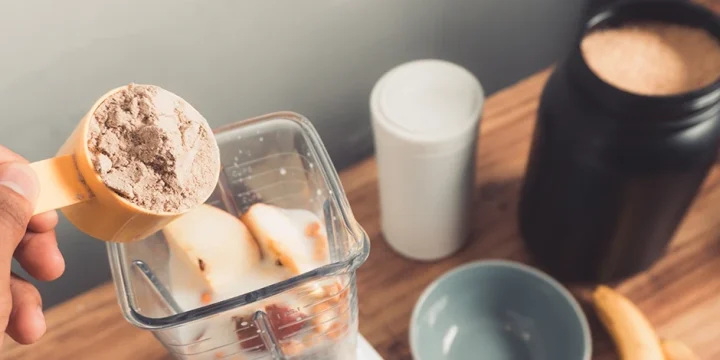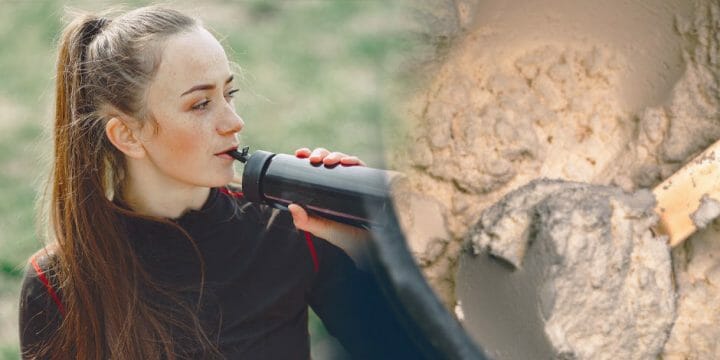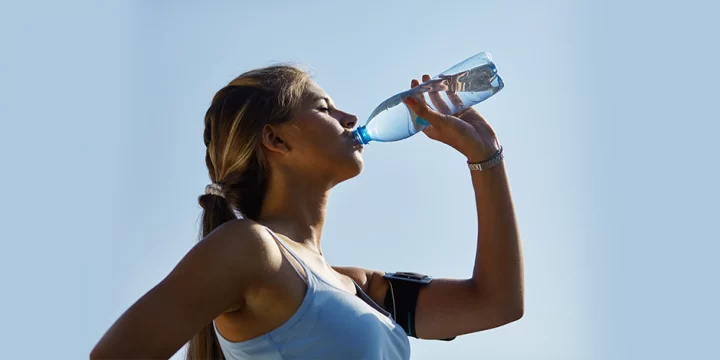Taking water with multivitamins is generally safe, but be cautious with high doses.
Vitamins interact uniquely with water and food; multivitamin brands vary in ingredients.
So, as a personal trainer with experience in research, I consulted nutritionists for expert advice to guide your multivitamin use.
Quick Summary
- You should drink water when taking multivitamins for maximum absorption and overall support for your health.
- The water-soluble vitamins are Vitamin C and Vitamin B complexes, such as riboflavin, thiamine, folic acid, and biotin.
- Consuming 8-13 cups of water daily for adults is recommended, emphasizing that excessive water intake can wash out certain vitamins and minerals, leading to deficiencies.
- In my experience, balancing water intake with multivitamin consumption is crucial for maximizing their benefits and avoiding potential health risks.
How Much Water Should You Drink With Vitamins?

You should drink eight 8-ounce glasses daily, adjusting for your lifestyle, like pregnancy, illness, or exercise.
Vitamin effectiveness can vary with water and food intake, so tailor your water consumption accordingly.
Water-Soluble Vitamins

Water-soluble vitamins are:
- Vitamin C
- Vitamin B complex - B1 (thiamine), B2 (riboflavin), B3 (niacin), B5 (pantothenic acid), B6 (pyridoxine), B7 (biotin), B9 (folic acid), and B12 (cobalamin).
These vitamins get dissolved in liquid and don’t get stored in your liver (unlike fat-soluble vitamins).
If unused, your body eliminates them through urine, so you must take them daily, best through a balanced diet.
Orange juice, citrus fruits, and sweet peppers are rich in vitamin C. Main food sources of B vitamins include:
- Legumes
- Dark leafy greens,
- Whole grains,
- Fortified cereals,
- Grain products, and
- Many other plant foods and animal products.
You can take these vitamins with a glass of water without food. Only vitamin B12 gets better absorbed with food, and vitamin C can block its usage [1].
Fat-Soluble Vitamins

Fat-soluble vitamins A, D, E, and K are stored in the liver, and water does not influence their absorption. They are best absorbed with fat-containing foods, though vitamins E and A may be more available on an empty stomach.
“And the morning would make sense if you drink milk, eat yogurt, or put avocado in your AM smoothie.”
- Dr. Michael J. Breus, Psychologist & Sleep Expert
I learned the hard way that balancing diet and supplements is key. Once, while maintaining a vitamin-rich diet, I took multivitamin supplements daily, not realizing the risk of overdosing on fat-soluble vitamins like A, D, E, and K.
These vitamins don't leave your body as easily as water-soluble ones and can accumulate to harmful levels. Thankfully, I caught on before experiencing any serious health issues, but it was a wake-up call about the dangers of excessive vitamin intake.
In addition to understanding multivitamins' timing and water compatibility, it's crucial to consider the form and quality of the supplements you choose. Opt for multivitamins available in various forms, such as tablets, capsules, liquids, or powders, ensuring they meet the Recommended Daily Allowance and possess the United States Pharmacopeia (USP) seal, guaranteeing purity and accuracy in labeling.
Related Article: What Percentage of a Multivitamin Is Absorbed?
Minerals

Multivitamins often include minerals like Iron, which should be taken carefully with certain foods and beverages.
Iron absorbs best with vitamin C-rich water or citrus juice on an empty stomach, while Calcium can inhibit its absorption.
Calcium, Magnesium, and Zinc are more stomach-friendly and absorb better with food, though not simultaneously [2] [3].
What are the best multivitamins out there?
FAQs
Should You Drink More Water When Taking Vitamins?
No, you shouldn’t consume much more water than typically recommended daily (9-13 cups for adult men and women) and needed to stay hydrated when taking vitamins because increased water intake can flush out some vitamins and minerals and minimize their benefits.
Can Drinking Too Much Water Wash Out Vitamins?
Yes, drinking excess water amounts can wash out water-soluble vitamins like B vitamins, vitamin C, and some other important nutrients from your body, and they’ll get excreted before getting absorbed, which may lead to their deficiency.
Can Drinking Too Much Water Deplete Minerals
Yes, drinking water excessively can deplete some essential minerals such as Magnesium and Sodium, causing water intoxication, i.e., Hyponatremia, an electrolyte disorder that can lead to mild or more severe side effects, including cerebral edema, seizures, coronary spasms, anxiety, coma, even death.
Does Drinking Water Help with Nutrient Absorption?
Yes, drinking water helps with nutrient absorption. Experts have found that it helps your body break down food and easily move it through your digestive tract. Also, it won’t dilute your stomach acid and interfere with the digestion as it was previously thought.
Can Drinking Too Much Water Dilute Nutrients?
Yes, water consumption in high doses can dilute nutrients like Sodium, Potassium, and other electrolytes in the body, causing some serious side effects detrimental to your health due to potentially fatal water intoxication and dangerously low salt levels.
References:
- https://www.hsph.harvard.edu/nutritionsource/water/
- https://www.ncbi.nlm.nih.gov/pmc/articles/PMC4470176/
- https://jcp.bmj.com/content/56/10/803.2
About The Author
You May Also Like






